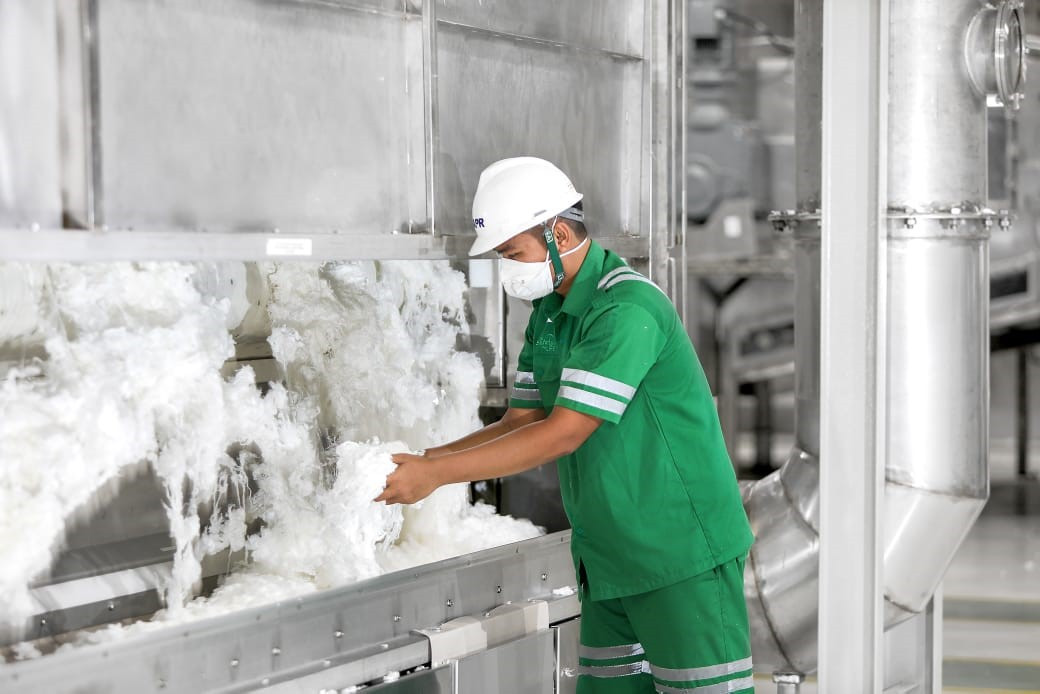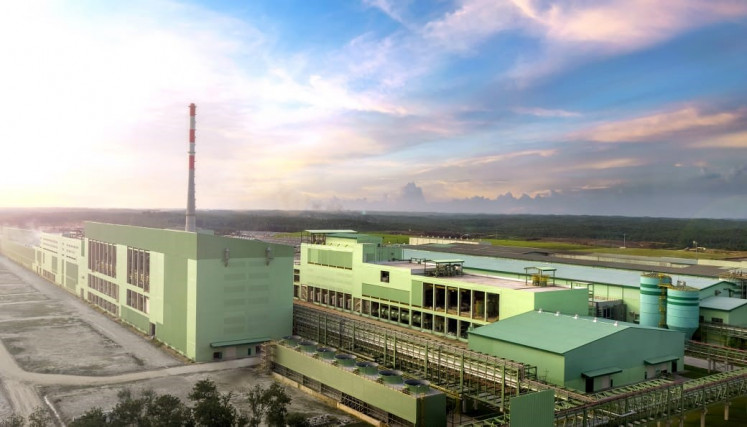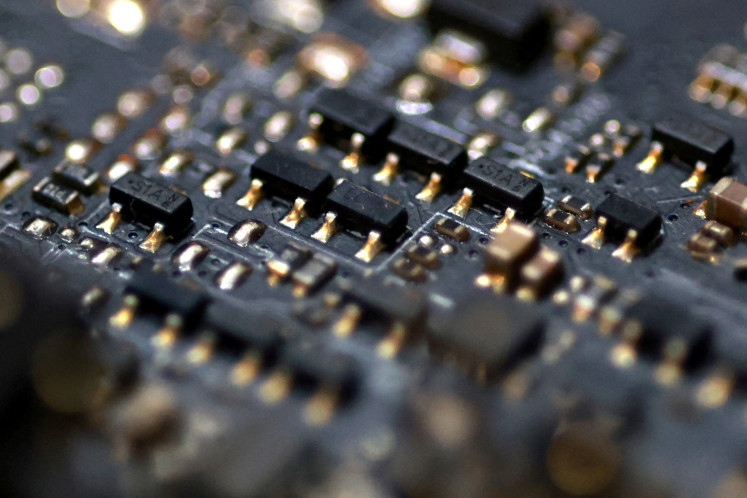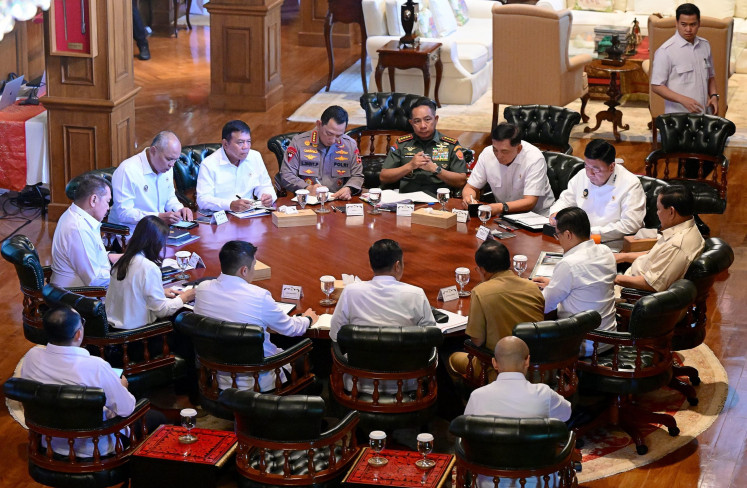Popular Reads
Top Results
Can't find what you're looking for?
View all search resultsPopular Reads
Top Results
Can't find what you're looking for?
View all search resultsAsia Pacific Rayon unveils ambitious 2030 sustainability agenda
Change text size
Gift Premium Articles
to Anyone
A
sia Pacific Rayon (APR), Indonesia’s largest integrated viscose rayon producer, has launched its ten-year sustainability vision, APR2030.
APR is committed to having a positive impact on climate and nature, clean manufacturing, circularity and inclusive communities, and APR2030 is aligned with 10 of the United Nation’s Sustainable Development Goals most relevant to APR’s business.
Anderson Tanoto, Managing Director of Royal Golden Eagle (RGE), APR's parent company, said: "At the recent COP26 meetings in Glasgow, Scotland, it was very apparent that business growth and sustainability need to be on the same side of the equation, and the launch of APR2030 is very much aligned with this”.
First, APR aims to pioneer accelerating circularity by producing 20 percent of its viscose using recycled textiles. It will collaborate with industry partners to advance the collection, sorting and recycling of textile waste.
RGE has announced a US$200 million investment through partnerships and technology innovation to mainstream the use of recycled textiles and other next-generation fiber sources in man-made cellulosic fibers (MMCF) production.
Through partnerships and investments, APR will further its research to understand the economics and logistics of recycled textiles, engage with the textile design community to inspire creativity and forge partnerships with innovators to advance technology solutions at scale.
. (Courtesy of APR/.)“As part of APR2030 implementation, we will pioneer textile waste recycling in Indonesia, from establishing the collection, sorting and logistics infrastructure needed to ensuring textile waste do not end up in landfills”. Director of APR Basrie Kamba said.
“Another key aim is to move sustainable fashion beyond being niche and make it accessible to designers and consumers everywhere. Indonesia is a reliable source of sustainably produced viscose made of renewable fiber from 100 percent plantation trees. APR2030 takes that even further by ensuring we support the global industry’s climate and biodiversity goals."
Basrie further elaborated that APR would focus on closed-loop technology and product innovation, as well as clean manufacturing.
APR is committed to reducing 50 percent of its water use, 80 percent in waste-to-landfill per product ton through closed-loop production and recycling investments and a greater than 95 percent sulfur recovery rate by 2030.
APR will achieve industry-specific operational goals along the way, meeting all the requirements stipulated in the current European Union Best Available Techniques Polymer reference (EU BAT Polymer BREF) for viscose and the Zero Discharge of Hazardous Chemicals (ZDHC) MMCF Responsible Fibre Production, Wastewater and Air Emissions guidelines by 2025.
APR further aims to reduce its carbon footprint per ton of viscose staple fiber by 50 percent, and will continue to derive 100 percent of its mill’s energy needs from renewable and clean energy sources.
The Riau-based company will also help eradicate extreme poverty within a 50 kilometer radius of their operations. Their plans include developing a vibrant textile hub in Riau where they will enable women entrepreneurs through traditional textile craftsmanship, focusing on Batik application on viscose fabric.
Their other means of improving gender equality and inclusive communities include providing women and youth access to further professional development. APR will also improve health services for expectant mothers and toddlers in seven villages within a 10km radius of APR’s operations. The company promises better access to maternal health, integrated childhood development and nutrition programs.
APR also commits to having a positive impact on nature and biodiversity. It supports its value chain partner’s APR2030 goal by advocating for conservation and wildlife habitat protection in Indonesia. Programs will include the development of a new generation of forest conservation ambassadors and working with forest communities to identify opportunities for sustainable livelihoods.
APR Director Basrie observed how businesses in Asia were moving to decarbonize their operations and supply chains. "A fundamental change is underway with the enhanced ability of businesses like ours to ensure that while we produce, we also protect carbon and biodiversity and empower communities where we operate,” he said."
Located in Pangkalan Kerinci, Riau, APR is Indonesia’s largest integrated viscose rayon producer. It is part of the RGE group of resource-based manufacturing companies.
APR is setting its sights on becoming a leading viscose rayon producer with the principles of sustainability, transparency and operational excellence, and serving the interests of the community, country and climate, while providing value to customers. The APR Sustainability Policy, updated in September 2020, incorporated commitments on pulp sourcing and clean manufacturing.
This article is a joint collaboration with The Jakarta Post and APR.












